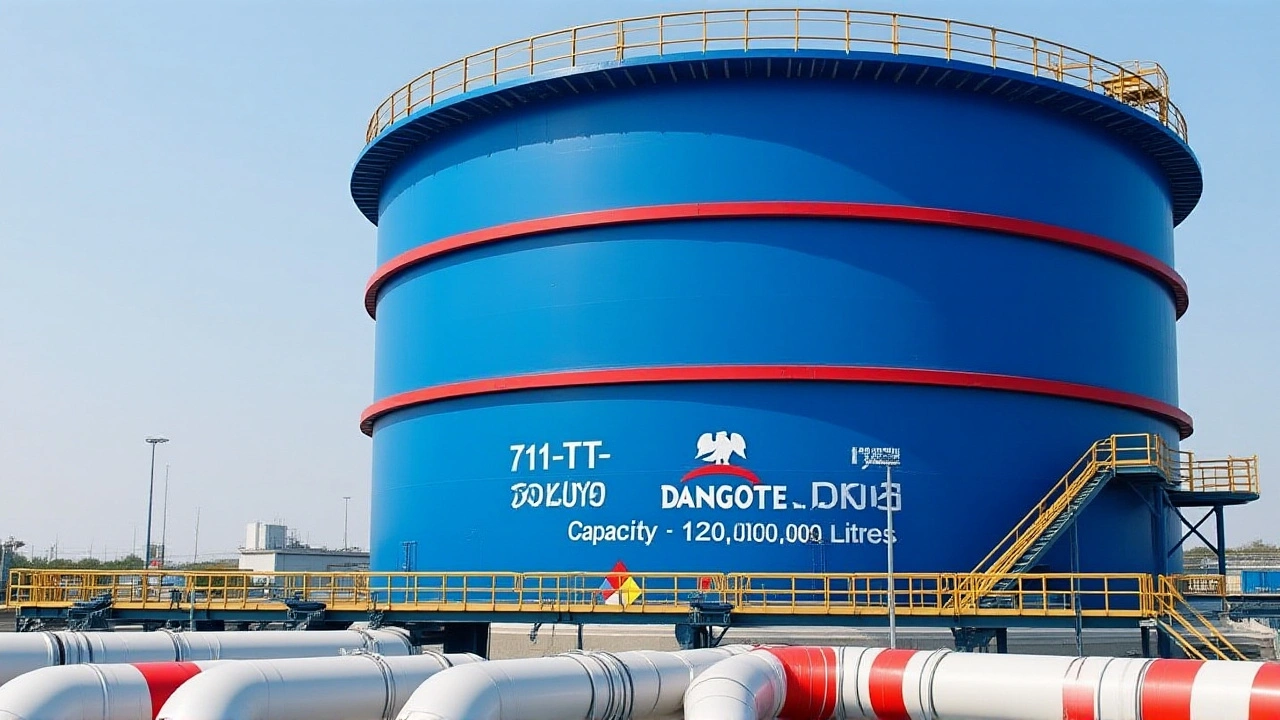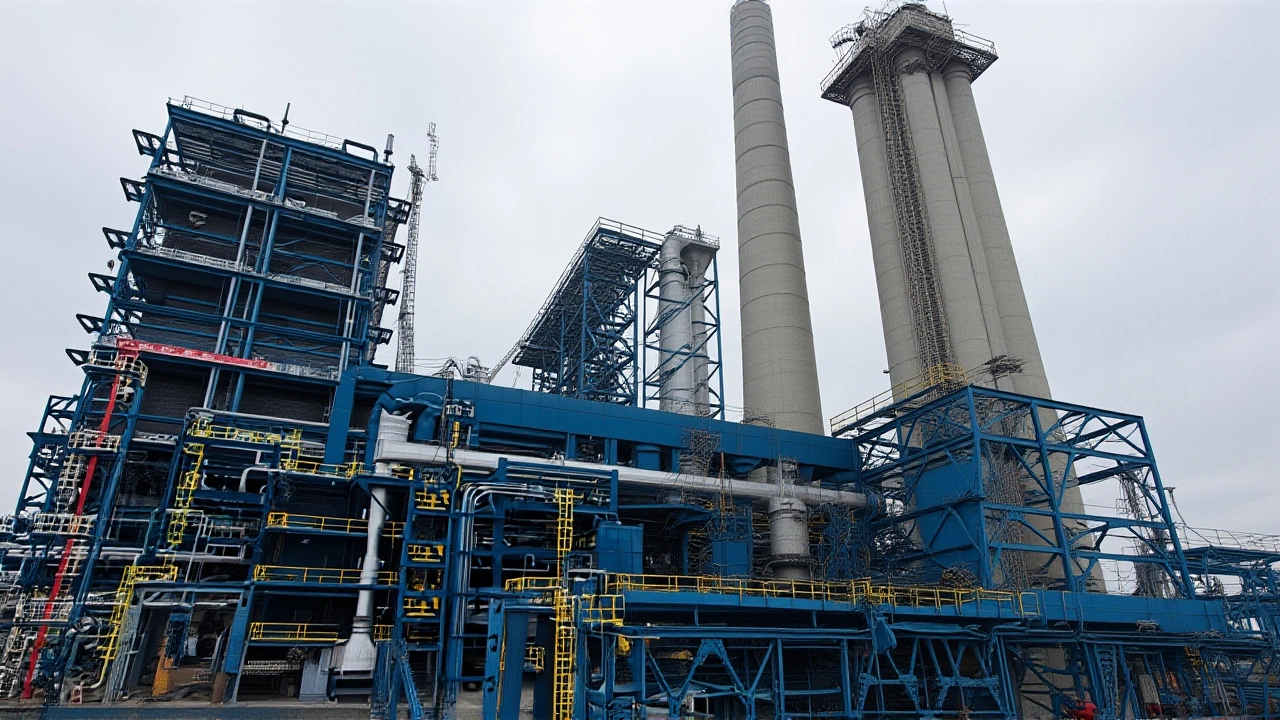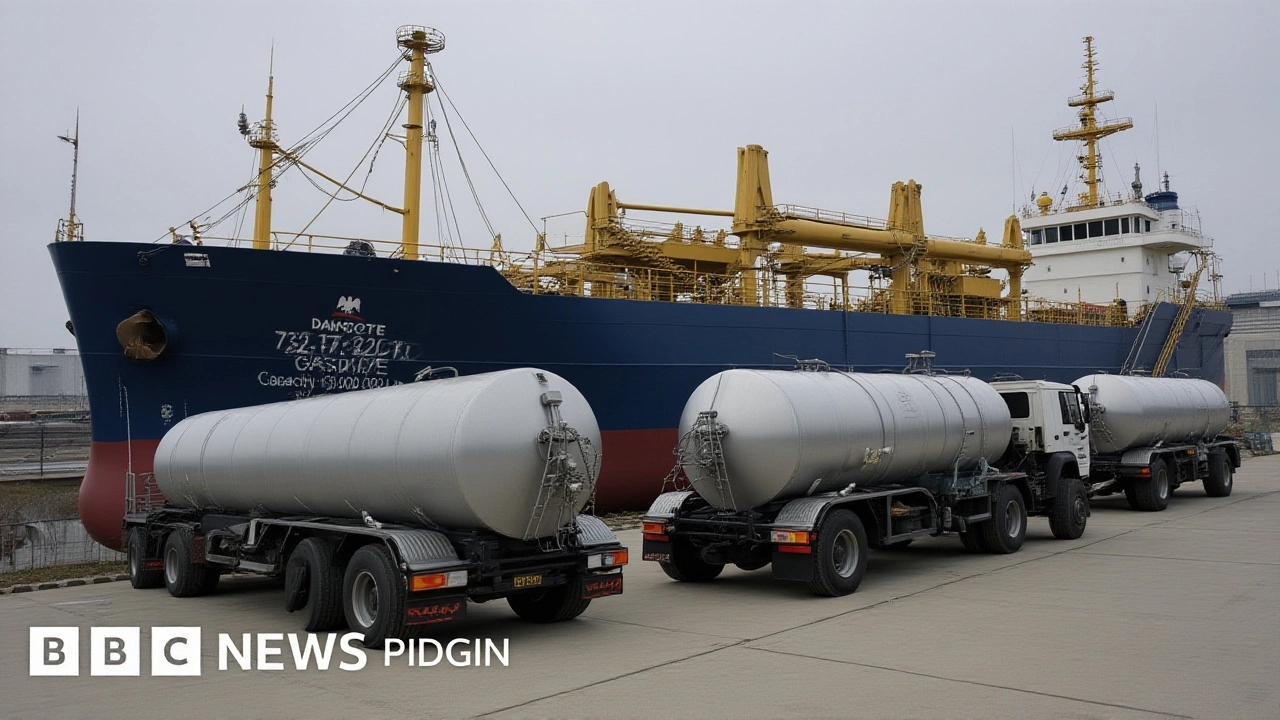Dangote Refinery sacks 800 Nigerian engineers, unions vow strike

When Dangote Petroleum Refinery Limited announced the termination of over 800 Nigerian engineers just 24 hours after they registered with the Petroleum and Natural Gas Senior Staff Association of Nigeria (PENGASSAN), the nation held its breath. The mass dismissals were signed off on 26 September 2025 at the refinery’s sprawling complex in the Lekki Free Trade Zone, Ibeju‑Lekki, Lagos State. Aliko Dangote, founder and Group President‑CEO of the Dangote Group, defended the move as a necessary ‘restructuring exercise,’ while union leaders cried foul, accusing the firm of swapping local talent for Indian nationals.
Background to the dispute
The refinery, Africa’s largest single‑train facility with a capacity of 650,000 barrels per day, represents a $19 billion investment and supplies roughly 60 % of Nigeria’s domestic petroleum demand. Historically, PENGASSAN has clashed with multinational operators over localisation. The 2022 showdown with Shell at the Forcados Terminal set a precedent for what many now call the most severe oil‑sector labor row since the 2020 strikes that crippled downstream operations.
What happened on 26‑27 September?
According to a statement released by PENGASSAN’s General Secretary Lumumba Chinedu Okugbawa on 26 September, the refinery’s management abruptly terminated the contracts of 803 engineers, most of whom had just received union registration cards. The union’s communication detailed that the dismissed staff were immediately replaced by a contingent of Indian technicians – a claim echoed by Vanguard Newspaper on the same day.
Within hours, PENGASSAN called an emergency National Executive Council meeting (27 September). Delegates voted unanimously to launch a nationwide industrial action, directing members to cease work at precisely 06:00 WAT on 28 September. The strike, slated to ripple through all 36 states, aimed to force the reinstatement of the sacked workers and to halt any further replacement.
Government steps in
The Ministry of Labour, together with the Ministry of Finance, summoned both parties to the capital on 29 September. The first round of talks began at 16:00 WAT and stretched into the early hours of 30 September, lasting nine straight hours before collapsing. Sources inside the Abuja venue reported that one side refused to sign the memorandum of understanding on the spot, provoking a sharp exchange of accusations.
During the marathon session, the Nigerian Labour Congress (NLC) announced it would mobilise its 40‑plus affiliate unions for a coordinated strike if the deadlock persisted. That move threatened to shut down not only fuel supplies but also transport, manufacturing, and services sectors that rely on the refinery’s output.

Economic stakes and possible fallout
Financial analysts at the Central Bank of Nigeria estimate that each day the refinery is idle costs the Dangote Group roughly $78 million in lost revenue. If the shutdown extends beyond a week, the ripple could push inflation in petroleum‑dependent sectors above 2.3 %, exacerbating an already fragile macro‑environment.
In response, the Nigerian National Petroleum Company Limited (NNPCL) activated emergency contingency plans on 29 September, diverting imported crude to mitigate fuel shortages. However, experts warn that the country’s strategic reserves would barely cover a ten‑day disruption, leaving motorists and businesses scrambling for alternatives.
Voices from the front line
"The sackings are a direct assault on Nigerian labor sovereignty," said Lumumba Okugbawa in an interview with BusinessDay. "We will not back down until every engineer is reinstated and those responsible are held to account."
Representing Dangote Group, spokesperson Anthony Chiejina, Group Executive Director of Corporate Services, countered that the restructuring aligns with global best practices for operational efficiency and that the company remains open to dialogue, provided it is grounded in factual evidence rather than emotion.

What lies ahead?
The next reconciliation session is set for 30 September at 14:00 WAT in the Ministry of Labour complex, Area 11, Garki District, Abuja. Both sides have a narrow window to craft a settlement before the NLC‑coordinated strike slated for 1 October, which could immobilise up to 15 million workers nationwide.
Analysts suggest three possible outcomes: a full reinstatement of the engineers, a hybrid solution involving joint training programmes for local and foreign staff, or an escalated strike that forces the government to intervene with emergency legislation. Whatever the scenario, the stakes extend far beyond the walls of the Lekki facility – they touch the daily commute of millions and the credibility of Nigeria’s push for industrial localisation.
Key facts
- Date of mass termination: 26 September 2025
- Number of engineers dismissed: 803
- Refinery capacity: 650,000 bbl/day
- Potential daily revenue loss: $78 million
- Next negotiation deadline: 30 September 2025, 14:00 WAT
Frequently Asked Questions
Why did Dangote Refinery dismiss the engineers so quickly?
The company said the terminations were part of a broader restructuring aimed at improving operational efficiency. Union leaders, however, argue the move was retaliatory, intended to replace local staff with cheaper foreign labour.
What impact could a nationwide strike have on everyday Nigerians?
A prolonged shutdown of the refinery would likely trigger fuel shortages, raise transport costs and push inflation higher. With the NLC backing 15 million workers, sectors from logistics to food processing could feel the ripple.
Has the Nigerian government intervened in similar disputes before?
Yes. In the 2020 oil‑sector strikes, federal mediators brokered a temporary wage hike and a pledge for greater local hiring. Those talks averted a complete shutdown, but critics say the underlying localisation issues remain unresolved.
What are the legal options for the dismissed engineers?
The engineers can file unfair dismissal claims with the Federal Labour Court. PENGASSAN has already warned that it will pursue legal avenues alongside industrial action if negotiations stall.
Could this dispute affect future foreign investment in Nigeria?
Potentially. Investors watch labour stability closely. A protracted conflict might make multinational firms wary of large‑scale projects unless clear localisation frameworks and dispute‑resolution mechanisms are put in place.
The entire episode reads like a textbook case of corporate neoliberal restructuring masquerading as efficiency drives. Dangote's decision to axe 803 engineers overnight violates not just labor statutes but also the tacit social contract between multinational investors and the local talent pool. From a strategic management perspective, the abrupt termination undermines human capital continuity, which is a critical asset in high‑margin downstream operations. Moreover, the substitution with Indian technicians raises legitimate concerns about knowledge transfer frameworks and the sustainability of such a workforce model. The unions' reaction is predictable, given the historic friction points that have plagued the Nigerian oil sector since the post‑2005 liberalization wave. Economic analysts have already quantified the daily revenue drag at $78 million, a figure that eclipses typical EBITDA margins for comparable refineries. If the strike materializes, the macro‑economic ripple effects could inflate fuel prices, erode consumer purchasing power, and destabilize inflation targets. Government intervention, while promised, often suffers from bureaucratic inertia that delays decisive arbitration.
The Ministry of Labour's marathon talks, extending into the early hours, exemplify a classic stalemate where each side clings to positional bargaining. In such high‑stakes negotiations, a joint‑training initiative could have served as a bridge between localisation imperatives and operational exigencies. Instead, the binary framing-local versus foreign-feeds a zero‑sum narrative that benefits no stakeholder. The legal recourse through the Federal Labour Court remains a viable, albeit protracted, pathway for the dismissed engineers. Yet, labour courts in Nigeria have a reputation for backlogs, which may render the legal route ineffective in the immediate crisis. From a corporate governance angle, transparency in the selection criteria for the replacement staff is paramount to restoring stakeholder confidence. Absent such transparency, the risk of reputational damage escalates, potentially jeopardizing future foreign direct investment pipelines.
Dangote's betrayal of Nigerian engineers is a flagrant affront to our sovereign workforce.
While the facts are stark, it's crucial to remember that many of these engineers have contributed decades of expertise to Nigeria's energy sector 😊. A collaborative dialogue, rather than a confrontational standoff, could pave the way for a win‑win solution that respects both operational efficiency and local talent development.
It’s downright unethical for any corporation to discard homegrown engineers in favor of cheaper overseas labor. Such tactics erode the very foundation of national industrial growth, and they set a dangerous precedent for future employers.
These moves hurt not just the engineers but the whole community that relies on their expertise.
It’s unfair.
For those wondering about the broader impact, the refinery supplies about 60 % of Nigeria’s fuel needs. A prolonged shutdown could mean fuel queues in major cities, higher transport costs, and an uptick in living expenses for ordinary citizens. Preparing contingency plans now can mitigate the worst of these effects.
The drama unfolding at Dangote is a textbook case of corporate hubris colliding with workers’ rights.
Let’s channel that energy into constructive action-organize peaceful rallies, engage media responsibly, and keep the pressure on both management and the government to find a fair compromise that restores jobs and maintains refinery output.
Ah, the age‑old ballet of profit versus principle-always choreographed to the same clumsy steps.
When we dissect the underlying power dynamics, we see a classic struggle: a multinational entity seeking efficiency, a labor force defending dignity, and a state caught in the middle, trying to balance economic growth with social justice.
We need a solution, not more drama 😐.
The fallout could echo across the entire continent if not addressed swiftly!
Exactly, the stakes are huge and we can’t afford silence 😠.
In light of the foregoing analysis, it is incumbent upon all stakeholders-governmental agencies, corporate leadership, and labor representatives-to convene forthwith and delineate a mutually acceptable framework that safeguards both operational continuity and the rights of the engineering workforce.
Honestly, I think the whole uproar is overblown; markets adapt, and workers will find new opportunities elsewhere.